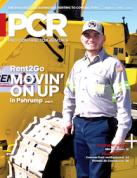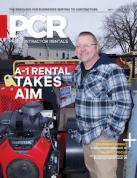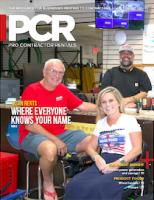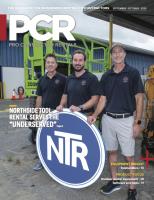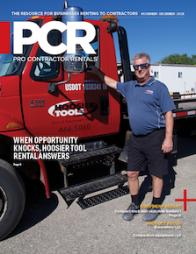Diesel engines need to keep their cool
Merlo equipment experts explain how coolant protects diesel engine health.
Industrial diesel engines by design create combustion as a means of converting energy to do work. The combustion generates heat, which transfers to the coolant as it works its way through the engine. This heated liquid then passes through the radiator. As it passes through, incoming air cools the coolant.
For example, machine manufacturer Merlo uses industrial diesel engines that are equipped with a high efficiency cooling fan situated behind the radiator and are designed to move large amounts of air efficiently. This design works well for machines that are in constant motion, and especially well when machinery is “fixed” and does not move around much while executing its job. As the coolant mixture cools, it then cycles back through the engine to repeat the process. Coolants absorb the heat so an engine can maintain its correct operating temperature.
Coolant defined
What is coolant? At its simplest: a cocktail of specific chemicals, when mixed with water, create a liquid that cools an engine during its operation. Coolant additives prevent cavitation (air bubbles) in the liquid medium used; it prevents scaling and rust build up, or oxidation.
Coolants (sometimes just called antifreeze) are important for anti-boil properties. A radiator cap in good condition creates pressure that combines with the additive ‘package’ to make sure the liquid does not boil over, even when environmental temperatures are quite high, such as we have experienced this year.
Coolants are required for all engines, though mixture rates and amounts will differ with each manufacturer and temperature. There are several coolant varieties available. Yes, in a pinch water can be used (though not recommended for long term use) if this is what is available and, in a place, where the proper coolant mixture is not available.
Coolant mixtures are a wonder: they lower freezing temperatures, raise the boiling point, protect against corrosion and supply lubrication for moving parts; something water alone cannot provide.
Of the industrial engine coolants on the market, Merlo specifies G-30 for all its engines, as do several other heavy equipment manufacturers.
This coolant checks all the boxes: a highly lubricant product protecting against corrosion, overheating and when the seasons change, frost and freezing conditions. Overall, G-30 supplies consistent, long-lasting cooling and lubricating performance even within extreme environmental and work conditions.
How to use coolant: Straight coolant is not recommended. Water needs to be added for the coolant to be most effective. It is the water that does the cooling; water sheds the heat.
Engine manufacturers note in their engine maintenance literature the percentage of coolant to water. For example: one manufacture specifies 38.4 percent coolant to water, but most folks usually create a 50/50 mixture.
Rental fleet best practices
To get more uptime from your machines, invest more time in the maintenance of those machines.
Every machine in a rental fleet should have its own maintenance record. Something as simple as a spread sheet with VIN and dates can work.
Let’s call it cheap insurance. This record ensures your technicians will always know when it is time (hours) to change out coolants per each engine manufacturers recommendations. A machine should get its coolant changed out on schedule, even if the machine is on a long-term rental. Yes, field work can be inconvenient, and most likely there will be an expense. Still, keep the costs in perspective: field work costs vs. replacement engine costs.
In the field or the shop, techs need to follow best practices, such as flushing coolant systems three times before changing the fluid if the original brand of coolant is not available. Different types of coolant brands should not be mixed. But even if you are using the same coolant, flushing will remove any accumulated contaminants.
Always keep coolant in stock. Many shops either keep the jugs on the shelf or have a drum with a pump. Do not use coolant that is not in spec. You may have to stock several types depending on each engine manufacturer’s requirements, so label them accordingly.
As a part of operational instructions, you may provide with each rental, include the request for operators to do a prestart walk-around and look ‘under the hood’ before every start up and job. Findings from a pre-start check will alert an operator, and as an extension of your maintenance technician, they can alert technicians if there are any noticeable issues such as liquid on the ground, weeping hoses and low levels of fluid in their respective tanks.
Engine startup best practices
Inside the cab, after the key is turned and the engine engaged, wait a few moments to view the icon dashboard. Are there any icons with a steady light? These are indicators of current issues, or reminders to act before issues become an issue. Small efforts like these can save time and money.
Merlo installs several engine models within its range of telehandlers and Rotos: Deutz, FPT, Kohler, Kubota and Perkins. Basic machine maintenance instructions can be found in most operator manuals. In the case of coolant, if not found there, the engine manufacturer’s manual should state best coolant maintenance practices. For Merlo it is:
• Every two years: full flush and replace coolant
• Use G-3O coolant which must be diluted with water.
When a machine comes back from a job, even if a fast turnaround is needed, take the time to do a walk-around, check for leaks, and any other damage or wear. Top off coolant and other fluid levels. Check the maintenance records, Is it two years since the last flush? Keep notes current. Remember: time and money spent on maintenance will always be much less than time and money lost due to a down machine.
The article was collaborated by Ed Sampson , a service advisor with Applied Machinery Sales; Bailey Beasley, shop manager with Applied Machinery Sales and Susan Doyle with the marketing department of Applied Machinery Sales. AMS is the importer and distributor of Merlo telehandlers and Rotos.
This article originally appeared in the November-December 2022 issue of Pro Contractor Rentals magazine. ©2022 Urbain Communications. All rights reserved.



